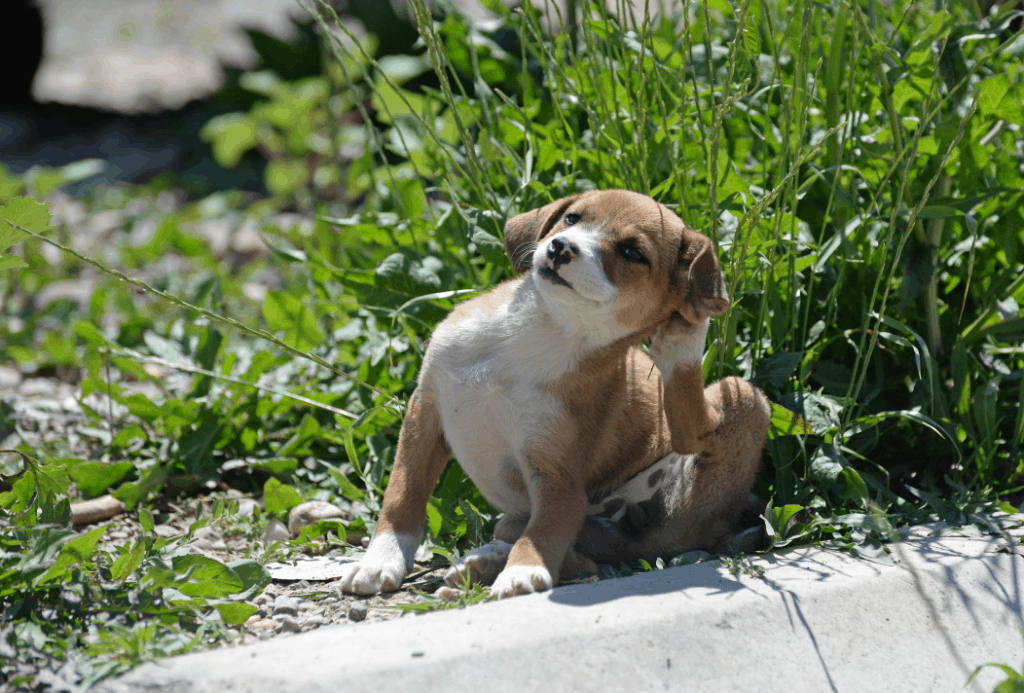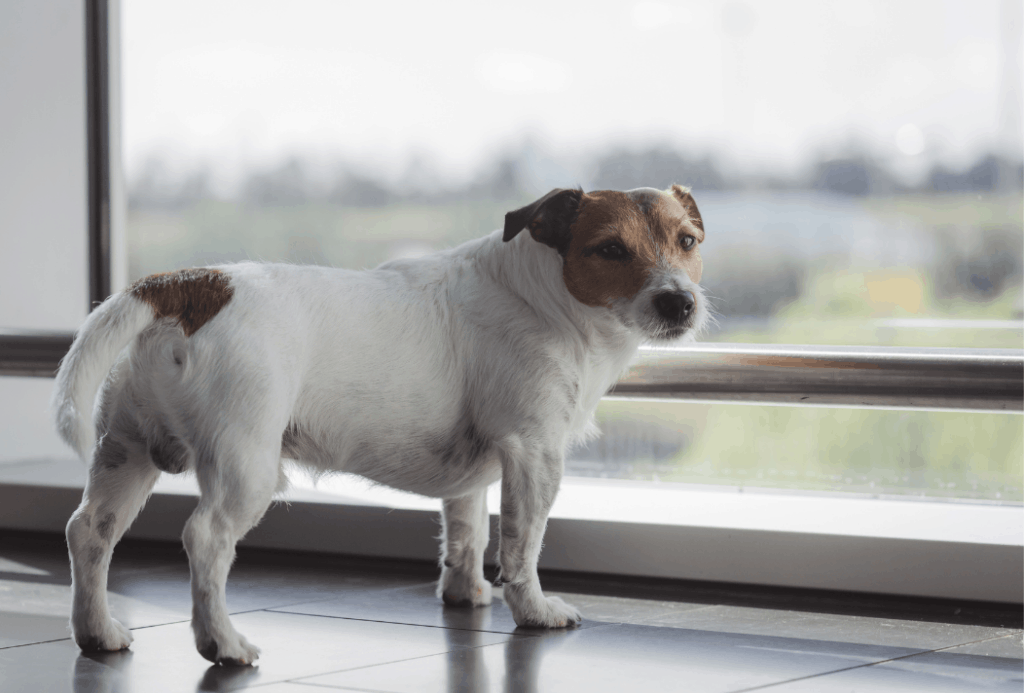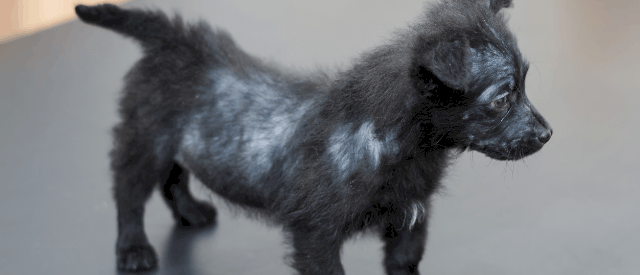If your dog has a healthy, shiny coat, you probably receive many compliments from people or questions about how they can get their canine companion to look just as wonderful.
When dogs start to lose hair, there is usually an underlying cause. Hair loss can be spotty and patchy, making their once lovely coat look unhealthy. In this article we look at some of the things that can cause hair loss in dogs, and ways to treat your dog’s hair loss.
What does dog hair loss look like?
Dogs can lose hair virtually anywhere on their body! It will sometimes fall out in large patches or in spotty patches, as if there is a moth-eaten appearance. Hair loss can occur around the face and ears, along the back or belly, and on the legs and paws. With certain diseases, the hair can fall out completely, or if a pet is chewing themselves in a particular area, the hairs can appear broken. When secondary infections occur with hair loss, you may see additional clinical signs like crusts, flakes, pustules, papules, redness, or bleeding.
What are some causes of hair loss in dogs?
Genetics
There are numerous causes for hair loss in dogs. Specific dog breeds like the Chinese crested are born missing hair along the back, chest, belly, and parts of their legs. Dogs with certain coat colors can have chronic bald spots along the midline of their back (e.g., dachshunds and Doberman dogs with blue coat colors) and may have an increased risk of developing blackheads in these areas.
Another inherited skin condition called alopecia X is when double-coated breeds like the Pomeranian lose hair along their trunk when they are adults. Boxer dogs can develop seasonal flank alopecia, which is when a Boxer’s hair follicles have an abnormal response to the changes in the lengths of the days each season. It is a cosmetic issue and poses no real threat to the dog’s health but can be treated by supplementing melatonin during these times.
Fleas
When fleas and mites are present, they can cause damage to the hair follicles due to inflammation. Since infestations can cause itching, scratching can also damage hairs and cause hair loss.

Allergies
Food allergies and environmental allergies can cause inflammation and scratching, both of which result in hair loss. The same is true for bacterial and fungal skin infections, especially ringworm. Ringworm, aka dermatophytosis, can cause a circular patch of hair loss, which is how ringworm gets its name.
Wounds
Hair loss doesn’t always go hand-in-hand with itchy conditions. When dogs are wounded, they can lose hair at the wound site, especially if the wound is large.
Anxiety
Dogs with anxiety may lick and scratch themselves to the point that hair falls out of their follicles. Hair loss can also occur with certain hormonal disorders like hypothyroidism and Cushing’s disease. Autoimmune diseases and skin cancer can also cause hair loss in some cases.

How is hair loss diagnosed in dogs?
If your dog is losing hair, it is best to get checked out by a veterinarian. Based on your pup’s medical history and clinical signs, the vet may recommend skin testing like a skin impression, a skin scrape, and/or a fungal culture. These are common tests that can be performed quickly.
Impression and scrape require the use of a microscope to look for bacteria, yeast, and mites like Demodex or Sarcoptes. Fungal culture requires a hair sample to look for ringworm but can take two to three weeks for final results.
Additional tests
- Blood and urine testing are important when trying to rule out an underlying hormonal or endocrine disorder.
- Special tests can help to confirm hypothyroidism or Cushing’s disease.
- If a severe infection is suspected, it is possible to culture the skin to see what kind of bacteria is present, which is especially useful for bite wounds.
- A tissue biopsy is sometimes required to rule out autoimmune disease or cancer
- Allergy testing also an important part of ruling out environmental allergies.
How can I treat my dog’s hair loss?
Since there are many different causes of hair loss in dogs, treatment is always based on the diagnosis.
Parasites
Most veterinarians can develop a working diagnosis of parasites or allergies and may treat accordingly. Topical or oral anti-parasitic medications can help with fleas and mites. Topical sprays and shampoos can help relieve itching and treat infection.
Fungal Infection
For severe fungal infections, oral anti-fungal medication is recommended. Antihistamines and novel anti-itch therapies can provide relief, and in severe cases, oral or injectable steroid may be necessary.
Autoimmune diseases
For hypothyroidism, a twice-daily thyroid supplement is prescribed. If a dog is diagnosed with Cushing’s disease, an oral medication may be prescribed once or twice a day that helps to suppress the release of cortisol from the adrenal glands. Some autoimmune diseases can be treated with immunosuppressive medications, but if cancer is suspected, surgical and chemotherapies may be necessary.
Your dog may be losing hair for various reasons! It’s important to find the cause.
There are many different causes for hair loss in dogs, and it can present itself in various ways. Early intervention is important because the skin is an important barrier against outside invaders. If hair loss is untreated, it can cause dogs to be more sensitive to sunlight, and untreated infections can open the floodgates for bacteria and allergens. With recommendations from your veterinarian, you can get faster relief for your furry friend.
Keep in mind that while mild to moderate skin infections can resolve in a few days or weeks with therapy, hair loss may take several months to improve. This is especially true when dealing with endocrine or autoimmune disorders because the medications can take a while to work, and hair regrowth is very slow.









